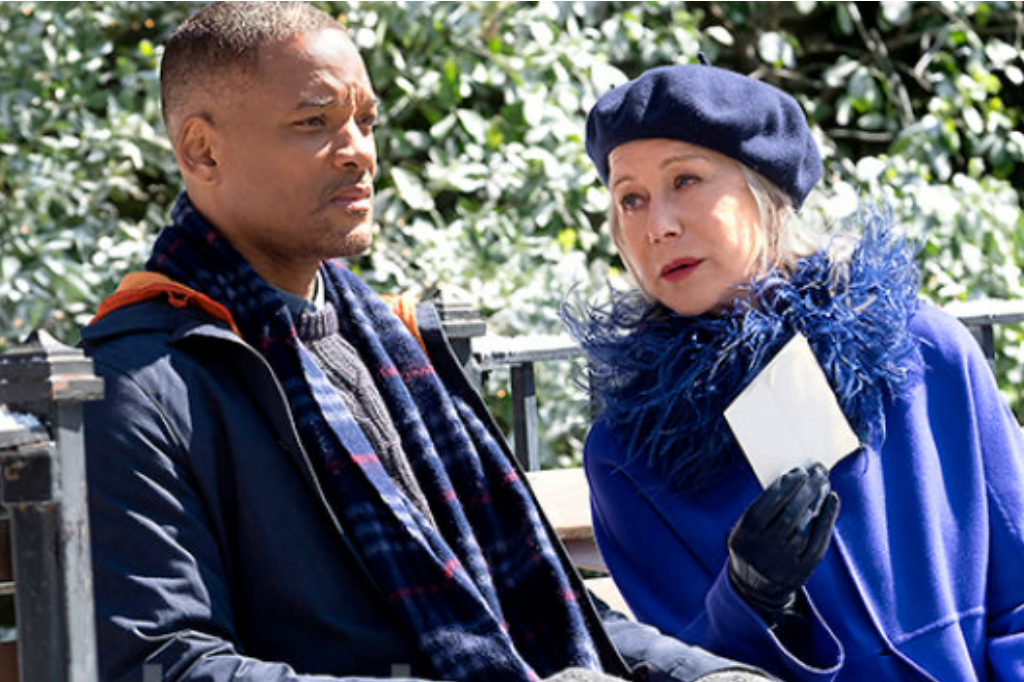Collateral Beauty
by Hope Madden
It’s December. That means many things to many people – to Will Smith, it means Oscar bait season.
The Legend of Bagger Vance. Ali. The Pursuit of Happyness. Seven Pounds. Concussion. Collateral Beauty.
One of those movies is pretty good. It isn’t this one.
In Collateral Beauty, Smith plays Howard, a charismatic ad exec whose daughter died three years ago. Since then, he’s been a zombie, rarely eating, riding his bicycle dangerously and spending his work days building elaborate domino structures just to watch them collapse.
Oh, the symbolism!
In a fit of grief one night, he writes three letters: one to death, one to time, and one to love.
In an audacious contrivance, wheels turn in the minds of his friends and colleagues – played by Kate Winslet, Ed Norton and Michael Pena – and the next thing you know, those letters are returned to sender, by hand, by the recipient.
Death – played with panache by Helen Mirren, has lessons to share, as do Love (Keira Knightly) and Time (Jacob Latimore).
Grief is a tough topic. It’s easy to be emotionally manipulative. It’s easy to be patronizing. Director David Frankel and writer Allan Loeb like easy.
Loeb tackled the same theme with his first feature, Things We Lost in the Fire – a well-cast effort that seeks to provide resolution to the grieving. From there, he’s mostly written bad comedies, often starring Kevin James.
Smith stares, tears up and rarely speaks in this cloying, predictable piece of pseudo-enlightened garbage – a film that offers telegraphed twists and jaw-dropping self-satisfaction.
One person’s grief is really nobody else’s damn business. It’s not a learning opportunity for those around, and there are no easy resolutions. Collateral Beauty does not empathize with the grieving. It empathizes with those uncomfortable with grief.
This is selfish. And yet, selfishness is applauded in this film, reframed as confused acts of love.
